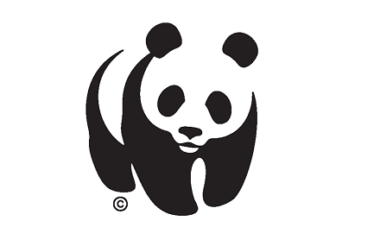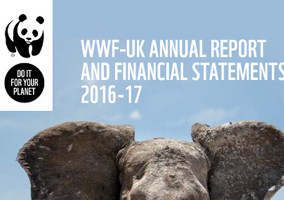WWF-UK has managed to increase its number of regular donors, turning around “a few years of decline”, according to its latest annual report and accounts.
The charity’s report for the year ending 30 June 2019 states that the charity has seen an increase of more than 6 per cent in its number of regular givers, which it anticipates “should lead to larger income increases in subsequent years”.
The report adds: “This is hopefully an indication that our new strategy, highlighting the drivers of the rapid loss of nature and the importance and urgency of our work, and improving our engagement with supporters, is beginning to work.”
More widely, the report says that WWF met its income targets and exceeded its total number of supporters, with a 23 per cent increase. The number of individuals giving a donation, which covers cash giving, shop purchases and direct debit donors, also increased.
The charity has confirmed to Civil Society News that its number of financial supporters rose from 387,000 at the start of its financial year to 419,000 at the end.
Overall membership and donations from individuals increased by £0.4m to £34.9m.
The charity significantly increased its spending on raising funds, by £2.2m to £14.9m. The report says that this was partly due to investment in online and social media advertising, “which has proved very cost effective” and led to the increase in supporters.
Amazing Planet aimed at 6-12-year-olds
The charity has also invested in a new subscription-based product called Amazing Planet, which is aimed at 6-12-year-olds and provides digital content in exchange for £10 per month. The charity said the benefits of this investment will be seen in future years.
It says that the charity has changed the way it engages with supporters, “so that they feel a deeper connection with our mission and have more opportunities to have a positive impact on nature,” adding: “We now regularly speak directly to a broad range of our supporters to get their insights on what would make our communications with them more relevant, empowering and inspiring – and check in afterwards for their feedback.”
The charity received 101 complaints from the public about its fundraising throughout the year, which it said is “a tiny fraction of the millions of communications we sent out last year”.
Slight fall in income due to timing
Overall, the charity saw its income fall slightly from £67.6m to £66.3m. It said this was “wholly due to the timing of draws by People’s Postcode Lottery”, which meant there was only one draw in the financial year, as opposed to six the previous year.
Legacy income was also down from £15.5m to £14.8m as the previous year had seen an exceptional bequest of £3.3m.
Income from corporate partnerships rose £7.4m to £9.4m following the launch of a new partnership with Tesco and the transfer of partnerships with the packaging company Mondi and the brewer AB InBev from WWF International.
The charity’s expenditure increased from £49.1m to £54.5m, leading to a deficit of £2.5m across the year. However, the previous year the charity had seen a surplus of £5.9m.
Reserves exceed target
WWF’s general reserves increased only slightly from £19.2m to £19.8m, but they remain well above the target range of £12m to £16m, which is set at approximately 14 to 19 weeks of unrestricted funds expenditure.
The charity said it had budgeted to bring the reserves down, but “some of the new areas of work identified in the new strategy took longer to reach the implementation phase than had originally been anticipated”.
The charity is now aiming to meet the upper end of the target by June 2020, saying that “a prudent approach is warranted given current economic uncertainty”.
Gender pay gap down
WWF’s median gender pay gap stands at 15.4 per cent, down from 16.8 per cent the previous year, while the mean pay gap is 15.1 per cent, down from 18.2 per cent. The charity emphasised that these figures are now below the national averages of 18.4 and 17.4 per cent, adding that its pay gap is caused by more junior roles being “predominantly held by women”, while senior roles are more evenly split.
The charity has a diversity task force as well as “a range of actions in place to support career development, progression and flexible working options for all our people.”
Redundancy costs stood at £92,000, down from £175,000. Average staff numbers were relatively stable at 354, compared to 349 the previous year.
The chief executive, Tanya Steele, received a gross salary during the year of £140,373, up from £136,013.
An independent review is currently underway into allegations made by Buzzfeed News that the charity funds paramilitary forces engaging in torture and killing across six countries.
|
Related articles











